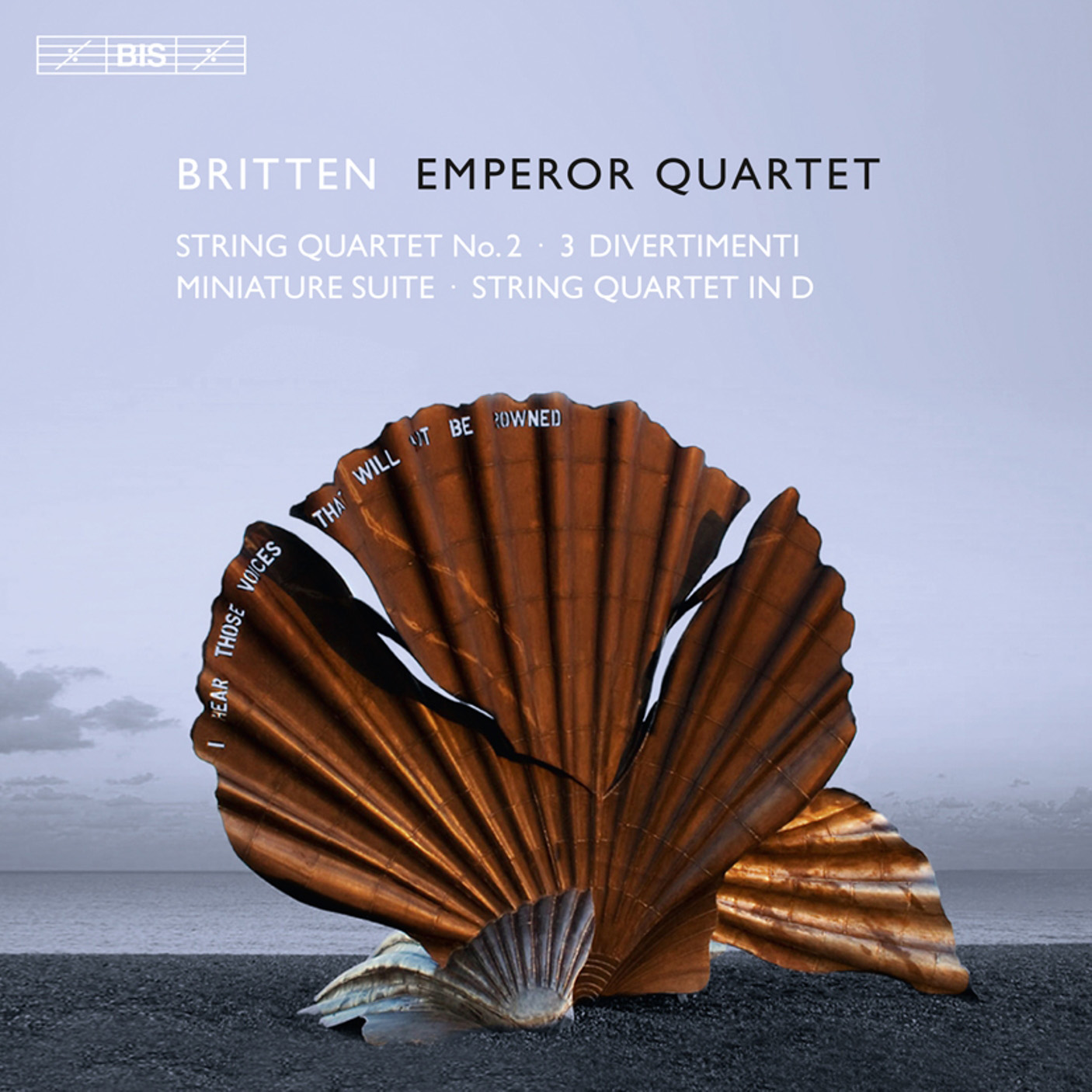More Early Chamber Music
Quite the assortment here too.
The Miniature Suite comes off as nearly inconsequential, for it finds Britten aping the Classical Era pretty solidly. Of course, with movement titles such as Minuet and Gavotte, why not a look back?
Yet there isn't any mark of the composer here either, other than hearing him work out older forms and styles in an unusually genial manner.
His Three Divertimenti have no such problems, however. The trio of movements are essentially character pieces, something which worked very well for me in his Simple Symphony. In this piece, a March, Waltz, and Burlesque are explored in Britten's unique musical voice, never taking a straight-forward approach to these model titles. Harmonically, I find each movement quite approachable in a general sense, while the addition of glissandi afford the music the slightest modern take.
If the Miniature Suite and Three Divertimenti had a keen wit and abundant smiles about them, the String Quartet in D Major is all business, showing a mature step towards his three opused quartets proper. The musical language uses that austere, open-harmonied style Britten employed early on; I am not always a fan, but generally speaking his motives are strong enough to carry me through, even if the harmonies and textures can be off-putting. The last movement's burst into major is a great arrival for the listener.
String Quartet no. 2 in C Major is the big number on this recording, but I will admit, I came to this recording for the rarer early works. While the first two movements of this quartet are substantive, Britten's focus is on the lengthy final movement Chaconne, a tribute to the composer Henry Purcell. Instead of a pastiche approach akin to the Miniature Suite though, this purely original Britten.
The composer adds three solo cadenzas, one for cello, one for viola, and one for violin, allowing three of the players to show off. Having recently listened to all three of Britten's string quartets recently, via the set on Hyperion from the Takács Quartet (BLOG), I may find the Emperor are a taddy-bit more distant sonically, and a little grainy sounding in ensemble quality. In the concluding movement, the Emperor Quartet adds four minutes in comparison to the other recording, making the music a bit more lyrical and searching than what I heard on Hyperion.
But, I never was a great comparative listener. I appreciate many different approaches and I gravitate towards those performances I think I will enjoy. If the Emperor are somewhat more subtle and reserved than the Takács, it is not necessarily for the better or for the worse to these ears.
What I can say is, the Emperor Quartet's straight-ahead style fits Britten's early works very well indeed, although I generally liked the selections on Volume 3 (BLOG) better than the ones programmed on this recording.
Works
String Quartet 2 in C Major, op. 36 (31.03)
String Quartet in D Major (19.11)
Three Divertimenti (10.15)
Miniature Suite (10.09)
Performers
Emperor Quartet
Martin Burgess, violin
Clare Hayes, violin
Fiona Bonds, viola
William Schofield, cello
Label: Hyperion
Year: 2010
Total Timing: 71.54
I am not as enthusiastic over this recording both due to the program and the Emperor Quartet in a recent comparison to the Takács.
The Emperor do strike out at the early works with great confidence and personality, so I treasure this recording mainly from this aspect.


Comments
Post a Comment